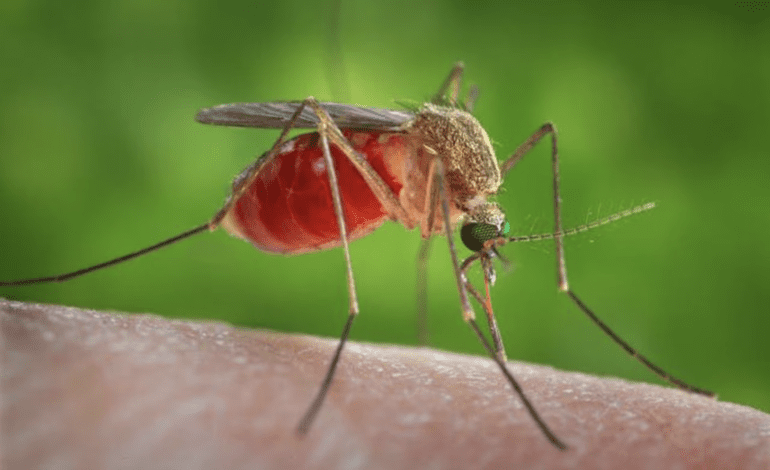On Monday, July 3, Bay County Mosquito Control issued an advisory stating that routine surveillance detected evidence of the Eastern Equine Encephalitis virus, or EEE, in a mosquito in Hampton Township.
“Surveillance undertaken by Mosquito Control is used as an early warning system,” said Rebecca Brandt, Bay County Mosquito Control manager. “Identifying the virus early in mosquitoes allows us to respond prior to the virus amplifying and prior to reports of human or equine infection.”
In response, Bay County Mosquito Control is amping up its control efforts to reduce adult mosquito populations. The department will also maintain its surveillance program to keep an eye on things.
“Along with control of adult mosquitoes, we will continue surveillance throughout the summer to determine the extent of virus activity,” Brandt said.
EEE is spread to people by the single bite of an infected mosquito, although many of those infected show no symptoms, according to Bay County Mosquito Control.
Signs of EEE infection include sudden onset of fever, chills and body and joint aches that can progress to severe encephalitis, resulting in headache, disorientation, tremors, seizures and paralysis, according to the Michigan Department of Health and Human Services. Anyone who thinks they may be experiencing these symptoms should contact a medical provider. Permanent brain damage, coma and death may occur in some cases, according to the MDHHS.
Despite EEE being fairly rare, it is the most serious of mosquito-transmitted viruses in Michigan.
“This testing information confirms the virus is here in mosquitos in Michigan,” said Dr. Natasha Bagdasarian, MDHHS chief medical executive. “EEE is one of the most dangerous mosquito-borne diseases in the United States, with a 33 percent fatality rate in people who become ill.”
As its name suggests, EEE also creates a serious risk for horses. Horses are also vulnerable to EEE, with a 90 percent fatality rate in those who become ill. The disease is not spread by horse-to-horse or horse-to-human contact.
The Michigan Department of Agriculture and Rural Development recommends that owners protect their horses by:
- Talking to their veterinarian about vaccinating horses against EEE and other mosquito-borne diseases.
- Placing horses and other livestock in a barn under fans during peak mosquito activity (from dusk to dawn).
- Using an insect repellant on animals that is approved for the species.
- Contacting a veterinarian if an animal shows signs of illness.
In 2022, there were no human cases of EEE. However, EEE caused the death of three horses from Eaton, Roscommon and St. Joseph Counties and one bird from Houghton County. In 2021, there was one human case of EEE. In 2020, there were four human cases of EEE, two of which were fatal. In 2019, Michigan had 10 cases of EEE, six of which were fatal.
As of June 30, more than 600 mosquito pools had been tested in Michigan this year, according to the MDHHS. In addition to the recent discovery in Bay County, the Jamestown Canyon virus, or JCV, was detected in Saginaw County in June.
JCV, which is routinely found in the area, was also detected in Bay County last week, according to mosquito control.
Fever, headache, and fatigue are common symptoms of JCV. The virus can rarely cause severe disease, including infection of the brain or the lining around the brain. There are no vaccines to prevent or medicines to treat Jamestown Canyon virus infection.
Bay County Mosquito Control officials are reminding residents to try to ward off the pesky biters the best they can.
Tips to avoid bites and to prevent mosquito-transmitted illness include:
- Applying insect repellent containing DEET, picaridin, or oil of lemon eucalyptus, according to label instructions
- Wearing long-sleeved shirts, long pants and socks when outdoors
- Limiting outdoor activity when mosquitoes are most active, especially between dusk and dawn
- Vaccinating horses






Leave a Reply